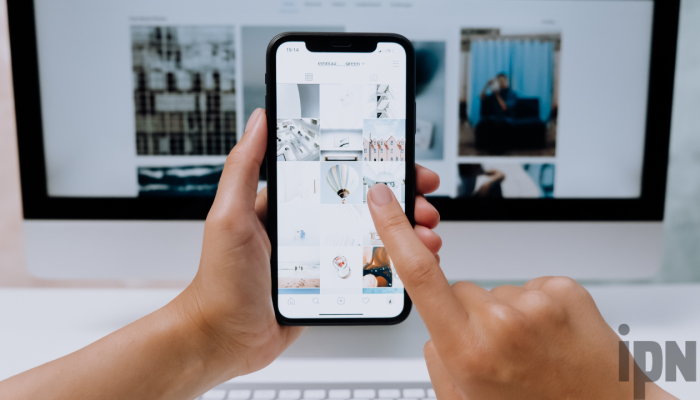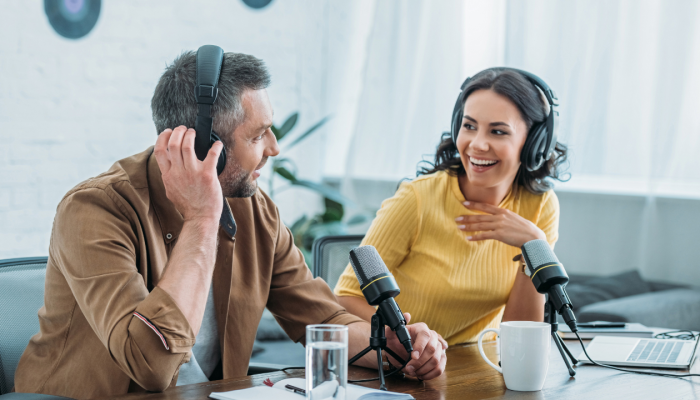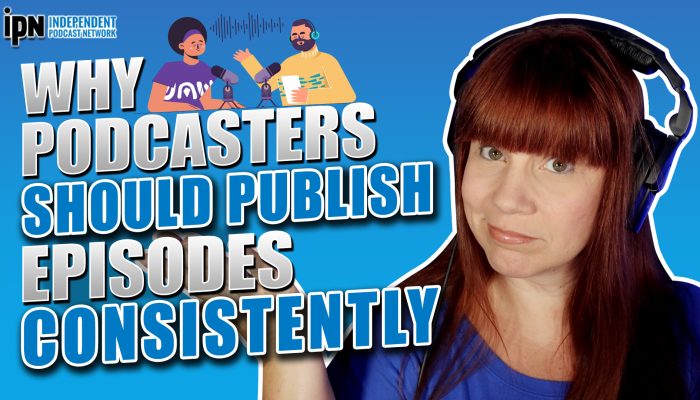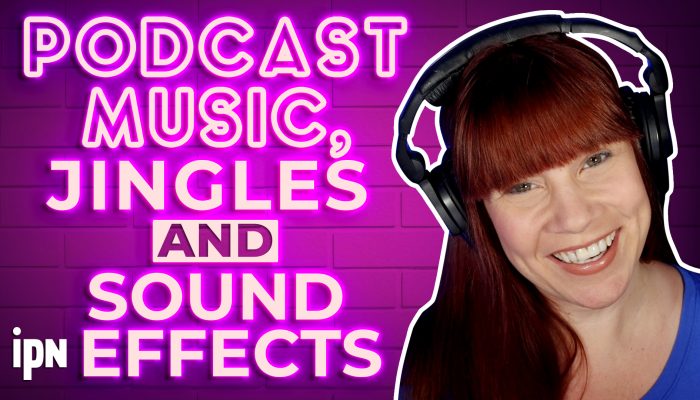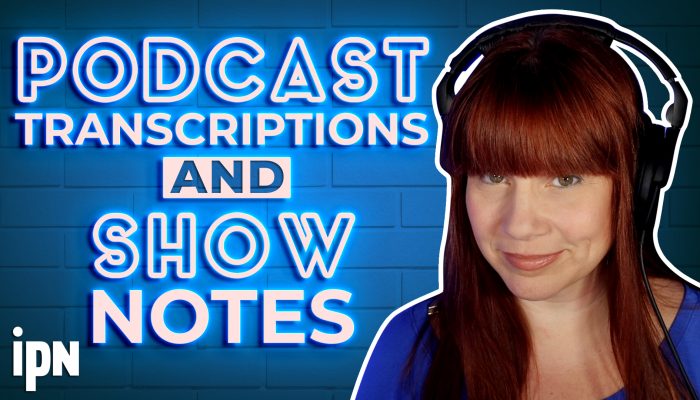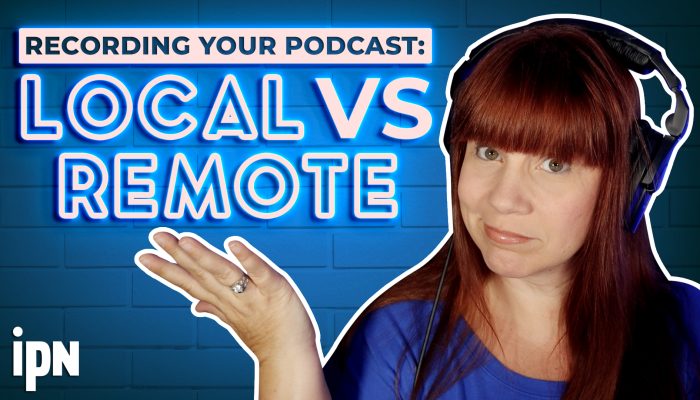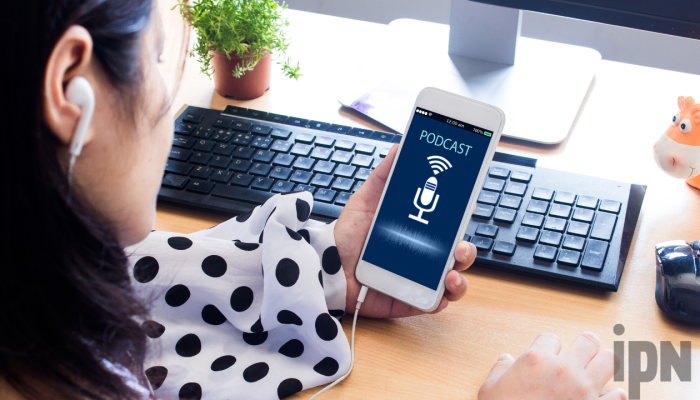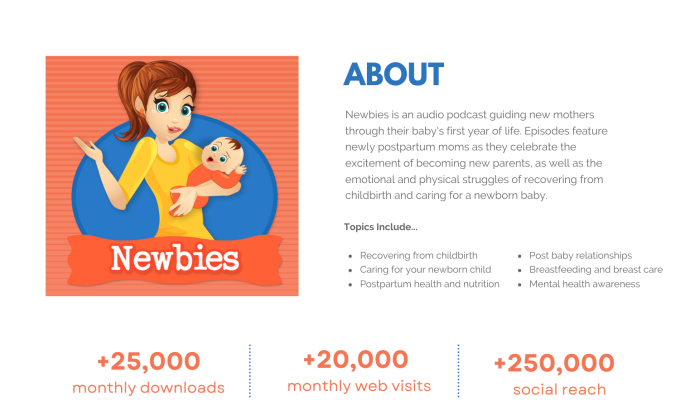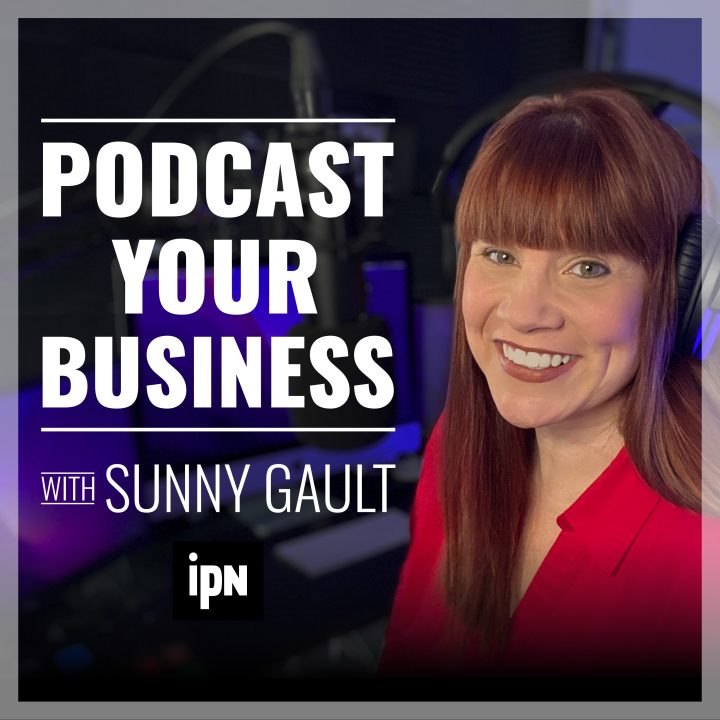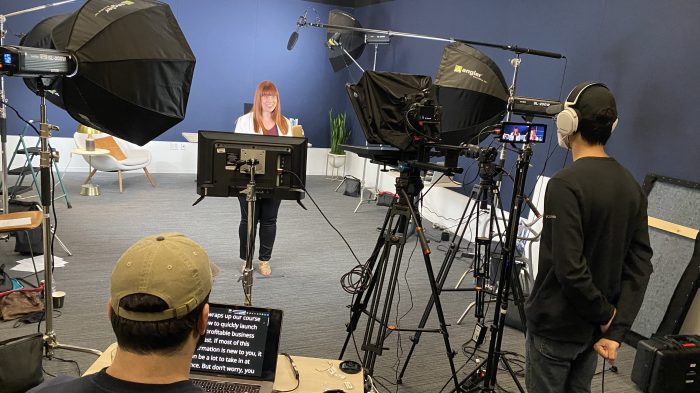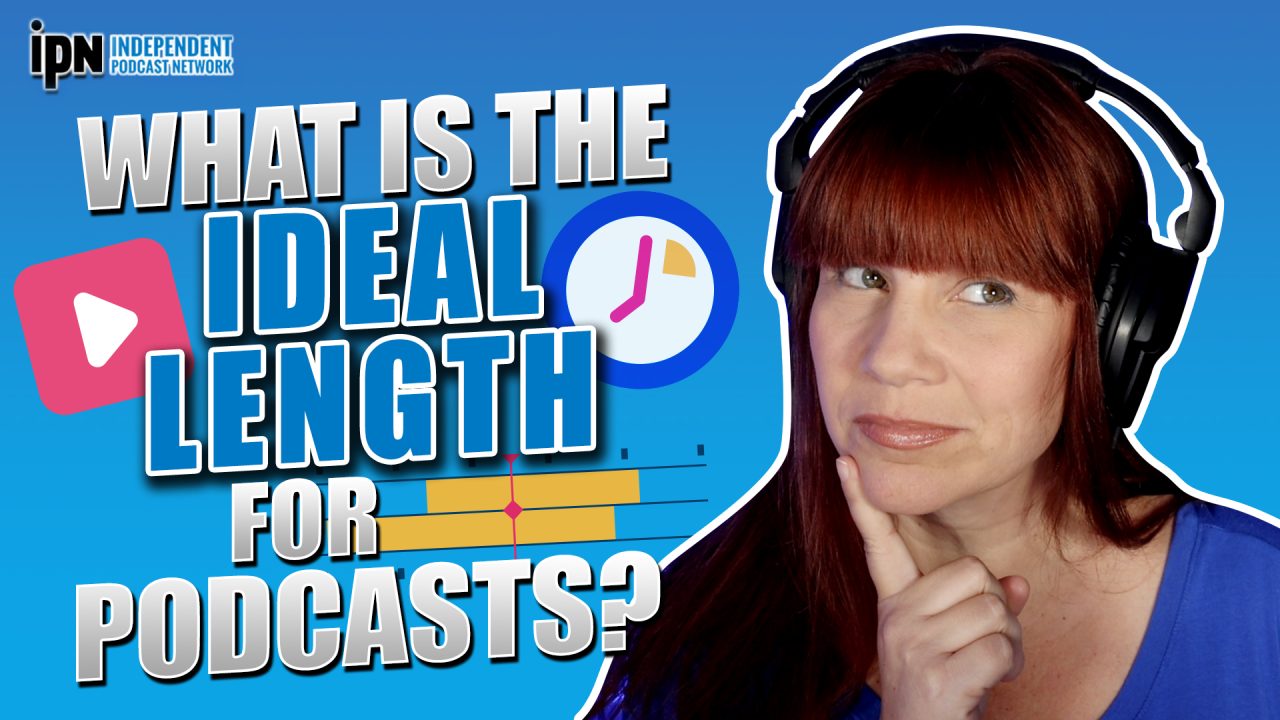
Should your episodes be shorter or longer?
How long should your podcast episodes be? This is a question I get asked a lot. And it’s a difficult question to answer because there is NO right answer. There is no one-size-fits-all recommendation for podcast length. But there are some factors to consider. On today’s episode, we’ll review some current podcast-length stats and discuss other things that may lead you to stray from the norm.
Here’s what we’re going to discuss…
- What is the average length of a podcast?
- What should you consider when determining your episode length?
- How do you know if your episode length works for your audience?
Here’s some research and stats on the current length of most podcasts.
Pacific Content- Podcast Episodes Got Shorter in 2019
https://pacific-content.com/podcast-episodes-got-shorter-in-2019-69e1f3b6c82f
Riverside- How Long Should a Podcast Be
https://riverside.fm/blog/how-long-should-a-podcast-be
Sample Podcast Script
Here’s a sample podcast script and outline I’ve been using to produce amazing interview-based podcasts for nearly two decades!

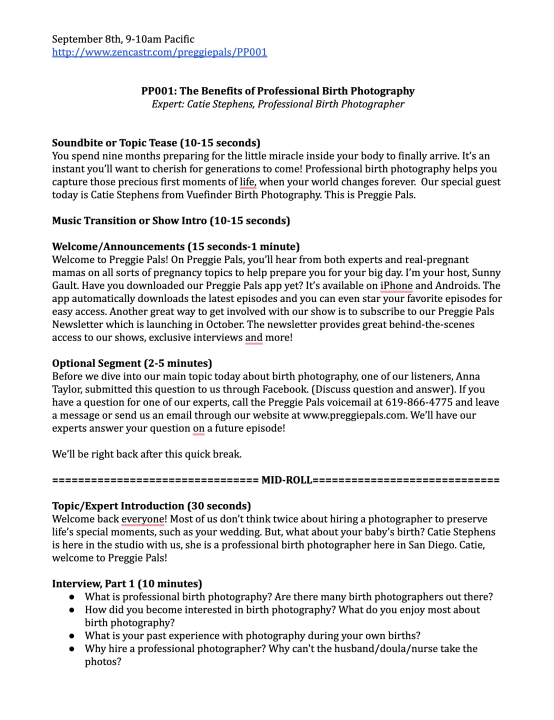
Episode Transcript
0:02
How long should your podcast episodes be? This is a question I get asked a lot. And it’s a difficult question to answer. Because there is no right answer. There is no one size fits all recommendation for podcast length. But there are some factors to consider. On today’s episode, we’ll review some current podcast length stats, and discuss other things that may lead you to stray from the norm. Take it away, Mr. radio man. Podcast Your Business.
0:42
Hello, everybody. And welcome to another episode of Podcast Your Business. I’m Sunny Gault. I’m a podcast coach and mentor. And I’ve been doing the whole podcasting thing for about 17 years. So Been there done that. Most of the topics we explore on this show, I’m also the founder and CEO of a company called Independent Podcast Network. And you’re more than welcome to check us out at https://independentpodcast.network. We help all types of podcasters, whether you’re brand new, we’ve got a ton of free content, including whole courses that are available for free on our website. And then if you’re ready to monetize, we work a little bit more closely with you and try to find advertisers that are really good fit based on your content. But today, I’m here to help you create amazing podcasts for your business. And we do this by mastering the five P’s of podcasting. The five P’s are prep, plan, produce, promote, and profit. So this is a list of P’s that I came up with when I was creating my very first podcasting course. And the idea behind that course was to get podcast to get started with their shows quickly, and to become profitable, as quickly as possible. And I thought, well, what does it take in order for our podcast to do that? And I thought, Well, you got to prep, you got to plan you got to produce you got to promote, and then you finally profit. So that’s what these episodes are based off of. And in each episode, we pick one of those peas. And we focus on a topic that’s related to that. So Mr. radio man and your fabulous radio voice. Which of the five P’s are we talking about today? Produce.
2:23
Yeah, you know, I was thinking, which P does this fall into? Because this could very easily be plan. Right? When you plan for your podcast, you’re talking about the look and feel for your show, which could be to determine initially at least how long is my podcast going to be generally speaking, right? Every episode is a little bit different. Because you don’t have any what we call hard outs, meaning you got to be out at a very specific time. But I ultimately chose produce because you can have the best of intentions. It’s your planning. But really, when you’re producing your show, when you’re actually doing the you know, the content creation, you’re recording your editing, that’s really when you have the most control over how long your podcast is going to be. So let’s review really quickly some of the things we’re going to talk about today, because again, I get asked this question all the time. And I originally thought this was going to be a very short episode, because I could give some really quick tips like I do if someone just you know, asks me in a zoom call or something like that. But there’s actually a lot more to it. When I sat down and really thought about this. There, there are several things that I think you guys should consider. So here’s what we’re going to learn in today’s episode. First of all, we are going to talk about what the average length of podcasts are, right now. Okay, so we’re gonna look at some stats, because there’s a couple different places where they have like, different groups, sometimes their podcasts, businesses, you know, they do something in the podcasting space. And they’ve done some research in this area to know for the podcasts that are out there. Now, what are the trends, right? And this is important to know because your podcast is going to be grouped with all of those shows. So we don’t want it to stick out like a sore thumb necessarily, right. Next, we are going to learn what you should consider when determining your own episode length. So stats are great. But you ultimately have to determine, well, does Mike Show fit with that? Or do I have a different vision because it really does come down to your content as to how long you know your show should be. And the final piece of information we’re going to talk about is how do you know if your episode length is working for your audience. So this is after you’ve launched your show, but we should always be tweaking our podcasts and trying to make them better. Now you could determine your podcasts length and just keep doing that no matter what. I don’t know how successful you’re going to be. Because it is really important to listen to your audience. And there are some different ways that you can check and see if that’s the best fit. You know, the length that you pick, does that actually work for your show? Or people getting bored? Or they, you know, if a show is too long, people will just quit listening? Or are people not really listening to your show? Because your episodes are too short. And you’re not really getting into the meat and potatoes of whatever your topic is about? Because you simply don’t have enough time. All right, well, we’re gonna get started on all of this. There’s a lot to talk about today, right after this quick break.
2:32
Podcasts come in all shapes and colors, sizes. And that’s one of the things that makes podcasting so special. To this day, both television and radio require content to be a very specific length. But you have more wiggle room with things like movies, have you noticed how like now movies are like three hours, three and a half hours long? Like I remember when I was younger, and going to the movies was like a really cool thing. And it was typically about 90 minutes. But now they’re like practically their own little mini series here. So there are some standards out there, right. And then of course, radio and TV, you have to be out at a certain time because another show is going to start. But that is not the case with podcasting. Generally speaking episodes. I know this is going to drive some of you guys crazy episode should be exactly as long as they need to be and not a minute longer. Isn’t that the most frustrating response ever? That’s typically what I tell people when they asked me this question. But what I don’t usually do is go into the why behind it. And that’s what we’re going to talk about today. So let’s break this down a little bit.
6:58
I want to start with podcast stats for the current length of episodes for our podcasts out there. Now, to be honest, we could probably use with some more data in this area. But I did a search online. And there’s a couple of resources that I’m going to post in the episode description, because it is worth you going through and looking at this information yourself. But I’m going to give you kind of an overview of some of the stuff that I found. So there was a guy, Dan Meisner, hopefully I’m saying his name correctly from Pacific content, which is a podcasting company, they actually create podcasts for brands. And they ran a couple different studies on this, they actually did their own research, which is pretty cool. I think they ran tests in 2018, and 2019. And here’s what they found, I’m gonna give you a, you know, some data points here in 2019. So this is the second test that they ran. And they analyze meta data from 19 million podcast episodes, which are about 600,000 podcasts, right? So a podcast would be the whole show. podcast episodes would obviously be one episode or two episodes, whatever from that particular podcast. What they found is that the episodes from their data in 2018 and 2019, that the episodes were getting shorter, about two minutes shorter on average. So now that you guys are like on the edge of your seat, I’ll tell you what the number actually is. They found when they compiled all this data, they found that the average podcast length was 41 minutes and 31 seconds.
8:45
They found that gaming and music, those types of genres had the longest episodes. Meanwhile, things like business and education had the shortest episodes, and I’ll even break that down a little bit more. When it comes to the shortest episodes. Anything focused on kids was short, much shorter. Okay, like 10 minutes or less. Anything focused on language learning was shorter. And I think that’s really interesting. The kid thing I totally get, I actually produce some kid content in the past, which I’ll tell you about later in today’s episode. And my episodes were shorter for that as well, because kids, you know, they it’s like something shiny, and they look somewhere else, right? Language learning, I thought was interesting. And it may I’m just guessing here, but it may have something to do with, you know, learning in smaller chunks, right, and then processing the information, but I found that to be really interesting. Again, I’m going to include the link to this data in the episode below because they go through every single genre you can think of. So you may want to take a look at that. When you’re creating your podcast episodes or you know, thinking about the length for your podcast and see where your genre hits, you might be surprised.
10:07
Now keep in mind this data, whether it was the 2018 research they did, or 2019, all of this was before the pandemic before the 2020. Let’s shut down the whole world situation which drastically impacted podcasting if you weren’t in the space. Prior to that, you might not have seen some of the big changes. I do think things are leveling out right now. But when everyone was stuck at home, first of all, a lot of podcasts were started during that time. Everyone’s like, let’s start a podcast, we’re stuck in our house. But the length of the episodes changed as well, because prior to the pandemic, people were really thinking about how to consume content to and from work. So their commute times or to and from the gym or even working out, right, I’m going to work out for an hour, I’m going to work out for 30 minutes, what can I do while I’m doing that? So that we’re going out more and doing this kind of stuff. And then what we found is during the pandemic, people were consuming a lot more content. But the big question is, did this really impact the people that were producing the content?
11:22
And to answer that question, again, more data, more data really needs to be produced on this. But I did find that the company Riverside, which is a podcast recording company, if you want to record remotely with your podcast, they’re one of the options out there. They publish some of their own research, which is labeled as 2023, which is the same year we’re recording this episode right now. And I’ll share with you some of that information because I do think it’s important to compare pre pandemic, to post pandemic because a lot of things changed, right. And their stats are a little bit different. They don’t break things down into genres and things like that. But they kind of grouped all the podcasts together. And here’s what they found. 14% of podcasts are less than 15 minutes long. 31% of podcasts are 15 to 30 minutes long.32% are between 30 to 45 minutes long. 18% are between 45 to 60 minutes long, and only 5% are more than 60 minutes long. Which means the bulk of people listening to podcasts are listening to show somewhere between 15 minutes long and 45 minutes long. Which is very interesting, right? Something to consider as you’re thinking about how long your episode should be.
12:56
So besides the stats, what else should you consider when determining your episode length? Because the stats, like I said, it’s important to know what’s happening in the industry. And it’s important to look at the average length, specifically, I think, for your genre, because those are people that in theory could also listen to your show. So inevitably podcast audiences are going to compare. And if your show is somehow in on par with another show, but another show, you know, let’s say it’s 15 minutes shorter, and it just works into their schedule a little bit better, well, then they may opt to listen to that show, as opposed to your so I’m not saying conform, like podcasts or like anti conformity, right. But it is important to know what your genre is doing. Now, I would say based on my experience, and especially after analyzing this data, I would say most podcast episodes should be an hour or less emphasis on the less so pretty much what I’m saying is try not to make it an hour or more. Try to do somewhere, like I said, between that 15 minutes to 45 minutes, if you can, if it makes sense. There are podcasts that are what I consider to be outliers that totally throw all this research and everything in the trash, because they have wildly successful shows that you know, blow this data out of the water. They just did their own thing. But their content is so good. And ultimately that’s why people are going to listen to your show. Okay, if it is just so good. They’re just going to listen.
14:39
So let’s talk a little bit about your content. You have to really think about what the goal is for your episodes. When you’re thinking about how long should my episode be? Well, how much do you need to put into an episode, which goes back to your goals? What are you trying to accomplish? With this episode or each of your episodes. So let’s say you’ve got a History podcast. And the way you really want to divide up the content is by, you know, giving the whole background and story of let’s just say how some conflict happened some sort of war or something like that, well, you may need a lot of time to be able to explain that. So if that’s how you want to organize your content, that’s fine. But you’re going to have to allow more time because there’s probably a lot of stuff to discuss. On the other side, let’s say you have a podcast where you provide inspirational tips for people as they get started with their day. Well, that’s probably not going to be a very long episode, you could probably say what you need to say in five minutes or less. So it’s as long as it needs to be, and not a minute more. That’s what I mean, when I give out that kind of advice. Other things that may impact the length of your show, are you having guests on your show, because time flies when you have guests on your show, usually it can also drag on forever if it’s a really bad guest. But generally speaking, any episode where you’re going to have a guest, I would plan on at least being 30 minutes long. Whereas if it’s a show like this podcast your business, well, it’s just me talking, of course, I have Mr. radio man. But pretty much, it’s just me talking. So I have a lot more control over how long the episode is going to be. Another thing to consider is if you’re going to have multiple segments. And this goes back to the format of your show, we’ve talked about this before, I’m actually planning to do another episode on the format of your podcast, because I think it’s just so important. But maybe you’ve got a show that isn’t just about an interview. And that’s it. But maybe you’ve got other segments, you do a segment where you read listener mail, you have another segment that people can contribute to, or you can ask the experts or something like that. All of that is going to add time to your episode. So if having multiple segments is really important to you then expect to have a longer podcast episode.
17:07
Let’s talk about monetizing your content. Your length of your podcast is directly connected to what you can do with advertising in your show. shorter episodes may not have enough time for ads. And this is whether you have baked in ads on your show or you’re doing dynamic ad insertion. It doesn’t matter which way you need to have enough content in your episodes so that people are okay with the ads. You know, I had this happen, I can’t remember the name of the show now, but it’s on our podcast network. And it’s a very popular show. And we wanted to add more commercial spots to the show. However, we really couldn’t the show was short, I can’t remember how long it was. Now this was like several months ago that this happened. But let’s say your show is like I don’t know, 15 minutes long, as opposed to like a 45 minute long show. You don’t want your audience to feel like they’re constantly hearing ads, because they they just won’t put up with that there’s research that’s been done on this. And, you know, we’ve strategized on the best way to do this, because we do need to make money with our shows. But we also don’t want to turn off the audience, right, we want our audience to still feel comfortable with the show they’re listening to. And right now the rule of thumb is one ad per 15 minutes of content, not that it has to be exact. But if you’ve got a 45 minute show, then you can have at least you know three spots where you can have ads. That’s kind of what we’re working with. So if you’ve got a five minute show, ah, what are you really going to do for ad space, you could probably do a pre roll, but probably not a post roll as well. People just aren’t going to listen. So in that case, you may have to double up your ads. So instead of just having one ad play, you have two ads play back to back. Or maybe you just have to think about another way to monetize your podcast, but you really don’t have the inventory to have multiple commercial breaks if you have a shorter podcast. So that’s definitely something that you need to consider in advance.
19:20
Now, how do you know if your episode length is working for your audience? Yeah, you could go back and look at the data of things that have already been studied for your genre and kind of use that as a guide. Maybe that’s what you start with. But really, this is about trial and error. If you are really passionate about doing things differently than what’s already being done the standard the norm, okay. Then this is just testing things out and looking at the data to see is my audience still growing? When are they dropping off in their listenership and there is tracking data that you can have access to, which lets you know, okay, you know, basically a timeline of your episode. And you can see where listeners drop off. Maybe they drop off before a commercial break, then you know, maybe that’s not a good place to put a commercial break. That’s where I use a lot of this data. But you may also want to do this to see when people stop listening. If you have an hour long podcast, and people are cutting out at 30 minutes, then what’s the point in producing an hour long show? So then the next question is, well, how do I get access to this data? I wish it was more readily available, than it is the number one place right now to access listener tracking data, let’s just call it that is Apple Podcasts. So you probably if your podcast is already launched, you probably have an account with Apple Podcasts. That’s one of the top three that we recommend. So you can go on there and assuming your podcast has enough downloads because they need to have enough data to work with, you will be able to again, look at the timeline for an episode and see where listenership starts to drop off. Now, the data is slightly skewed, because Apple only tracks when you are on Apple devices. And then it even depends on what version of the software is on the device. So it’s not the best data, okay, because what you really want is a comprehensive view of anyone that listens to an episode, right? Whether it was one person that listened, or it was like 1000 people that listened. But we really don’t have that information now. So, Apple Podcast is still your best bet. I looked it up. Google Podcasts actually has this tracking ability, but they’re going away. I don’t know if you heard this. I don’t know if like a little birdie came and told you. And I don’t know if I’ve mentioned this on an episode before Google Podcasts is going away. And that’s one of the top three that we recommend. But they are merging with Google. No, sorry, YouTube, right, because they’re co-owned, right one owns the other. And so there are more features coming out on YouTube for podcasts, which we’ll see where that goes, okay. But that was the other place where you could track this data, but it’s going away. Spotify is the third podcast distribution site that we recommend. And it doesn’t even have the data. So sorry, you’re stuck with Apple Podcasts, at least for the time being. So if you’re set on a specific length, my recommendation is launch your show with that length, do it the way you want to do it. But then use these tracking tools to see if audiences agree.
22:46
Now that doesn’t mean even if your audience doesn’t agree, or you know, maybe your show isn’t growing the way you want it to grow, it doesn’t mean you have to change, because I do believe that you should be producing podcasts that you want to produce. But if you are planning to monetize with it, or, you know, trying to grow your audience, for other reasons, maybe to benefit your business, then yeah, you probably should adjust some things stay true to who you are, and the content that you’re trying to produce. But you may have to adjust some things just so you know, it’s more palpable to your potential audience. Okay. But having those kinds of analytics can really help, you may need to, if you need to cut back on stuff, couple ideas, reduce the scope of your topics. So instead of having a really big topic that you could talk about for hours, and hours, think of how you can divide that up with my parenting shows, I did a lot of series. Okay, so we’re gonna do a series on how to feed your toddler. But there’s a lot of different stuff that we can talk about, that would be a really, really long episode, if we just did one. So we’re gonna do a whole series on that. So maybe you can divide things up into smaller portions. And that’s usually better for the audience. Anyway, another thing you can do is make your interview shorter. So obviously, this is assuming that you do have a guest. But maybe there’s there’s lots of different ways you can cut things down, maybe don’t do their whole bio on the podcast, I don’t you know, that always drives me crazy on shows. I cut it down. So I have like a one liner about who the expert is. And then you know, their bios on the website and people can, you know, check out all of their links there. So maybe you don’t ask as many questions right. Another thing you can do is reduce the chit chat, maybe you and your co host. If you have a co host, you just chat a lot in the beginning. One thing that I have found based on feedback, this is people leaving reviews on my shows and stuff in the past is that people want you to get to the content of whatever you’ve put in the title of your episode. They want you to get to that content as quickly as possible. And if you have, like I talked about segments earlier, if you have multiple segments before you get to the heart and soul of what this whole episode is about, you’re probably going to get complaints. Okay? So maybe you need to reduce the chitchat, reduce the segments, all that kind of stuff. All that obviously is going to help you minimize the length of your episode. I also recommend and we’ve done a whole episode on this in the past is that you have someone air check your episode, that is just a fancy term to say, have someone listen to an episode, and then give you some basic feedback. In this case, the most important thing is, at what point in this episode? Did you, did your mind start to wander? That’s the best question to ask. Should it be shorter? Where did your mind start to wander and why? If you can get that kind of information from someone or multiple people, you’re doing really well. Like I said, we did a whole episode about this, if you want to search for airchecking episodes, I also have a handout that goes with it. That’s a really great thing to do get feedback on that.
25:59
And then take that feedback, because you can always make changes to your podcast, when I started Podcast Your Business, my thought is that these were going to be 15 minute episodes. And I started it that way. And I think it was only that way for like a few episodes, maybe four or five episodes. And then if you look at the history, they got longer and longer and longer. And now we’re, we’re, I’m lucky if I, you know, finish things in 25 minutes right now, according to the clock work 26 minutes, we’re about to wrap things up. But the episode naturally got longer and longer, because I felt more comfortable. And I would start to share more stories. And I really feel like this is probably the best length for this show. Now I have no idea how this falls in with the stats for like tech, you know, I just probably falls into like a tech category or education category. But this feels good for the show. And this is what it’s going to stay at. Right? So yes, use the data, all those different points and things that we talked about. But ultimately, you have to do a show that you feel good about. That’s what’s most important.
27:07
All right, guys, hopefully, we gave you some really good tips today. And you have an idea of how to determine that ideal length specifically for your podcast. Be true to who you are and the type of content that you want to produce. Now once you’ve come up with an ideal length of what you’re hoping for, the next best way to make sure you hit that mark each time is to not just wing an episode, it’s to have some sort of script or outline that can guide you through an episode perhaps your guests if you have guests that are part of an episode, and I’ve got a great script template for you. I’ve come up with this. This was me doing my parenting shows a while ago, it’s a combination of some things are scripted, some things are just bullet points. Obviously you can take this and make it your own. But if you want kind of an outline of what’s worked for hundreds and hundreds of my shows, then take this information and use it I will include the link to that in the episode description below. We have a ton more free resources on our website at Independent Podcast Network. This includes blog post, because we’ve got new posts released every week. More podcast episodes like this one. We’ve got some videos, lots of handouts. And if you’re brand new to podcasting, we have that free how to podcast course and I also just launched another podcast about how to use dynamic ad insertion. So check that all out at Independent Podcast Network. Until next week, remember…you should start a podcast!
